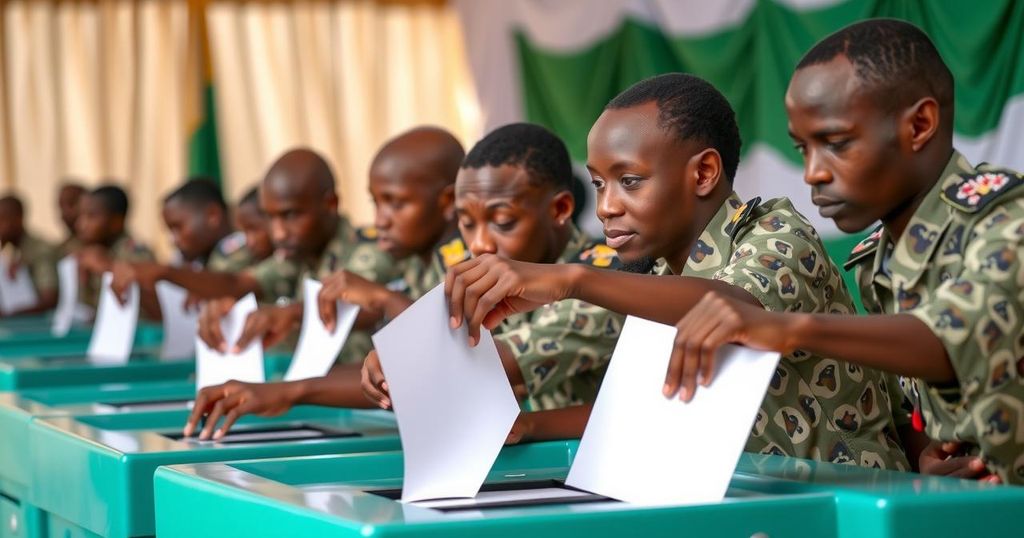Chad Holds Parliamentary Elections Amid Boycott from Opposition Parties
Chadians voted in parliamentary elections that concluded a three-year military rule, amidst a boycott from major opposition parties. The elections are Chad’s first in over a decade and occur following a disputed presidential election won by junta leader Mahamat Idriss Deby. Concerns over electoral credibility and legitimacy mark the political landscape as the nation attempts to transition back to democracy.
Citizens of Chad participated in parliamentary and regional elections on Sunday, which signified the conclusion of three years of military rule. However, the primary opposition parties boycotted the elections, citing a lack of oversight and credibility from the authorities. The elections represent the first instance of such voting in over a decade, coming on the heels of a disputed presidential vote that junta leader Mahamat Idriss Deby won earlier this year.
With a population of approximately 18 million, Chad has not experienced a free transfer of power since gaining independence from France in 1960. This election is pivotal, lying within a larger context of delayed democracy in the Sahel region of Africa following military transitions. Registered voters totaling over 8 million are tasked with selecting 188 members for the National Assembly, alongside provincial and municipal representatives, with results anticipated in the coming weeks.
Key opposition groups, including the Transformers party led by Succes Masra, have criticized the process, labeling the elections a “charade.” This sentiment is echoed by several political actors, including the Group of the Cooperation of Political Actors (GCAP), which asserts that participating in what they deem predetermined outcomes only serves to legitimize oppressive leadership.
The current political climate is fraught with challenges, including threats from Boko Haram in the Lake Chad region and deteriorating relations with France. Political experts underscore the critical importance of this election, asserting that it signifies a watershed moment in the potential reinstatement of true democratic governance in Chad.
In reflection of the current challenges, political scientist Mahamat Oumar Adam posits that the primary concern for Chad is not merely safeguarding democracy but preventing an extension of the transitional government without adequate opposition representation, thereby undermining the legitimacy of future governance.
Chad has experienced prolonged political instability, with power transitions often marked by military rule. After the death of long-serving President Idriss Deby Itno, his son Mahamat Idriss Deby has attempted to steer the country back toward democratic governance. The current elections are significant not only for their timing, following years of military oversight, but also for the level of opposition participation and public sentiment surrounding the electoral process, which many perceive as lacking integrity.
In summary, the parliamentary and regional elections in Chad are pivotal as they aim to conclude a prolonged transitional period marked by military rule. The boycott by major opposition parties highlights concerns regarding electoral legitimacy, raising questions about the future of democracy in the nation. The engagement of more than 8 million voters in selecting their representatives is critical, but the absence of credible opposition may undermine the integrity of the electoral process, shaping Chad’s political landscape for years to come.
Original Source: abcnews.go.com




Post Comment